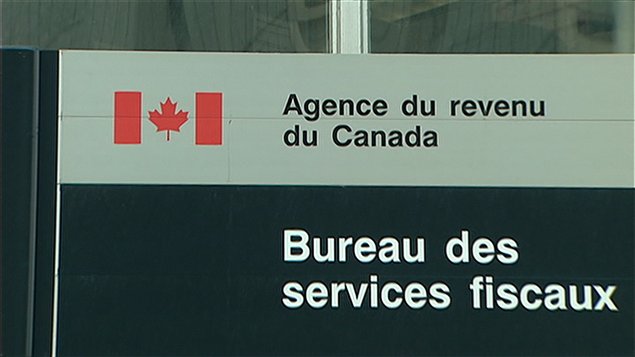One clue that things are out of whack with our tax system comes from the army of people required to police it. The Canada Revenue Agency has 40,000 employees. By contrast, the U.S. Internal Revenue Service makes do with just twice as many staffers in a country with 10 times the population. Do the math, or have your accountant do it for you, and it appears the average IRS employee is five times as productive as the typical CRA worker.
Now, before I get an audit notice, let me rush to add that I have no reason to think our tax collectors are unusually lazy by international standards. One big reason for CRA's swollen size almost certainly lies in Canada's comically convoluted tax code. It's a labyrinth of rules that appears to have been cobbled together during a midnight rave-up of politicians, Sudoku aficionados and people new to the English language.
The system taxes a dollar differently depending on whether it comes from a paycheque, a small business, the sale of your principal residence, a capital gain or a dividend. It requires taxpayers to parse the intricacies of RRSPs, TFSAs, spousal deductions, adjusted cost bases and tax credits, while slamming those who trip up.
Yet the CRA is not particularly effective at enforcing compliance. The gap between what the agency should have raised in theory and how much it actually received stood at $8.7 billion in 2014, according to the CRA's own calculations.
The sheer complexity of the rules makes even tax professionals want to howl.
Seven out of 10 accountants in a survey conducted by the Chartered Professional Accountants of Canada indicated that our Jenga-like system of credits, deductions and tax breaks cries out for reform. In a masterpiece of understatement, CPA Canada noted “some tax administration processes are needlessly burdensome, even in relatively straightforward tax situations.”
The right-leaning Fraser Institute points out that the Income Tax Act swelled from six pages in 1917 to 1,412 pages in 2017.
Sure, the world has grown more complex over the past century, but has it grown a couple of hundred times more complex?
Probably not.
Our current tax code baffles even the people responsible for enforcing it. In a recent study, the Auditor General of Canada found the CRA's call centres gave wrong information to callers nearly a third of the time. Taxpayers required unusual stamina to get even that error-prone advice. Nearly two-thirds of calls to CRA call centres were never answered, either because of high call volumes or because callers hung up when attempting to navigate the CRA's automated-service maze.
STORY CONTINUES BELOW ADVERTISEMENT
We have to do better, not just for the sake of convenience, but for reasons of fairness. As things now stand, the staggering amount of red tape discourages people from applying for credits they deserve. In 2018, a Senate committee discovered that fewer than 40% of the adults who were entitled to the disability tax credit in 2012 succeeded in claiming it, in large part because of the daunting amount of paperwork required.
The question is how to reform a system that has sprawled in every direction.
Making matters even more difficult is the growing trend toward income inequality. An increasing proportion of society's earnings now flow to the top tier of earners. This poses a knotty dilemma. On one hand, any attempt to impose hefty levies on society's wealthiest and most productive members simply prods people of high ability to decamp to other countries. On the other, it's hard to ethically or politically justify a system that goes easy on the well-to-do simply because they're mobile.
Economists and other theorists who study optimal approaches to taxation generally agree on a few notions. They're for reducing special exemptions and flattening tax rates. They also find merit in distinguishing between income from employment and income from stocks, bonds and other investments.
For example, Kevin Milligan of the University of British Columbia has argued persuasively for a system that combines strongly progressive tax rates on employment income with a relatively low flat rate on investment income.
The goal would be to tamp down the inequality in people's paycheques while encouraging individuals to invest in activities that can grow the economic pie for everyone.
One modest first step would be to follow the lead of the United Kingdom and set up an Office of Tax Simplification. More ambitiously, the time is ripe for a broad rethinking of Canada's tax system. Our last such effort, the Carter Commission in the 1960s, took 10 years to move from initiation to very piecemeal implementation.
The sooner we get started on a new effort for the 21st century, the better.
Ian McGugan is an award-winning Globe and Mail writer. Reach him atimcgugan@globeandmail.com or on Twitter @IanMcGugan



























